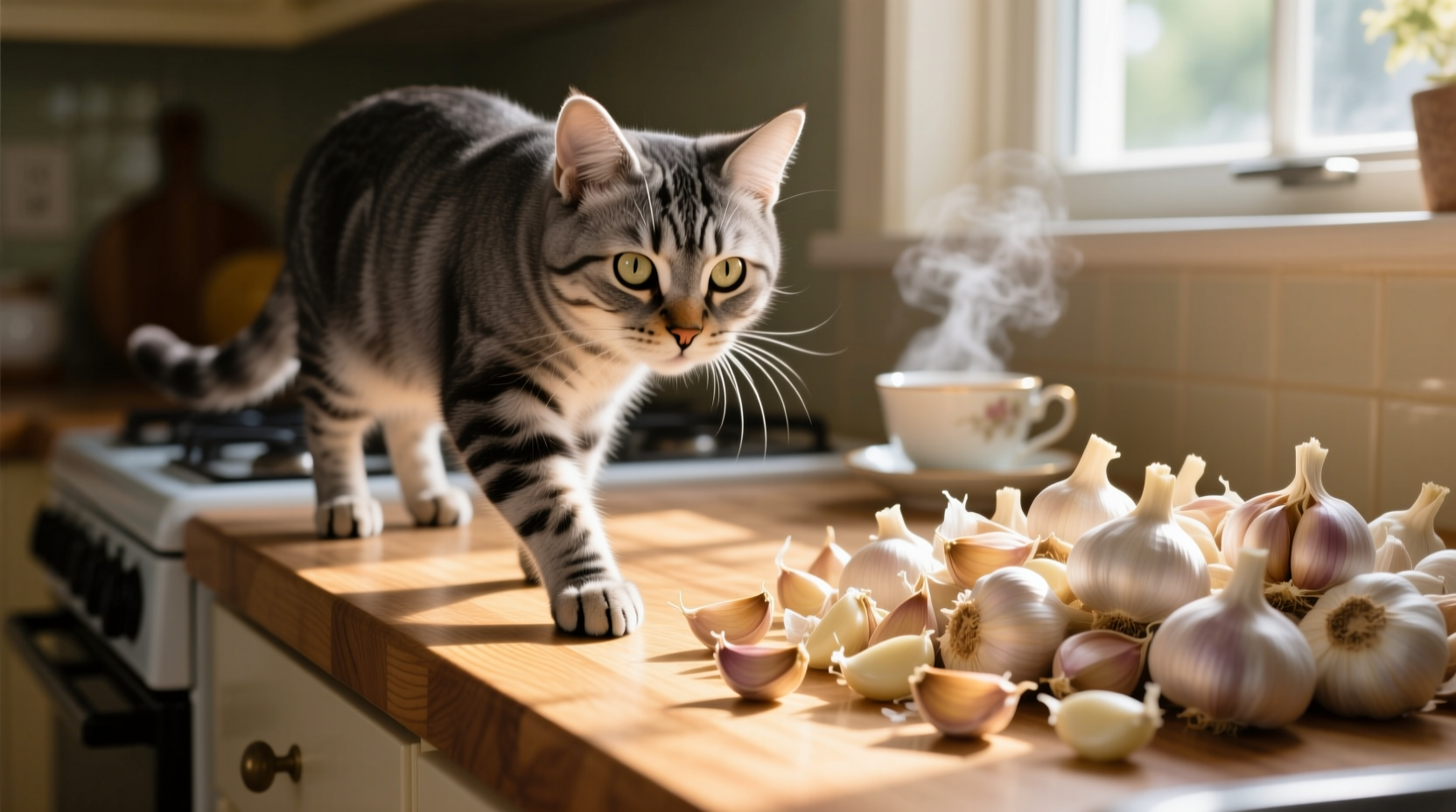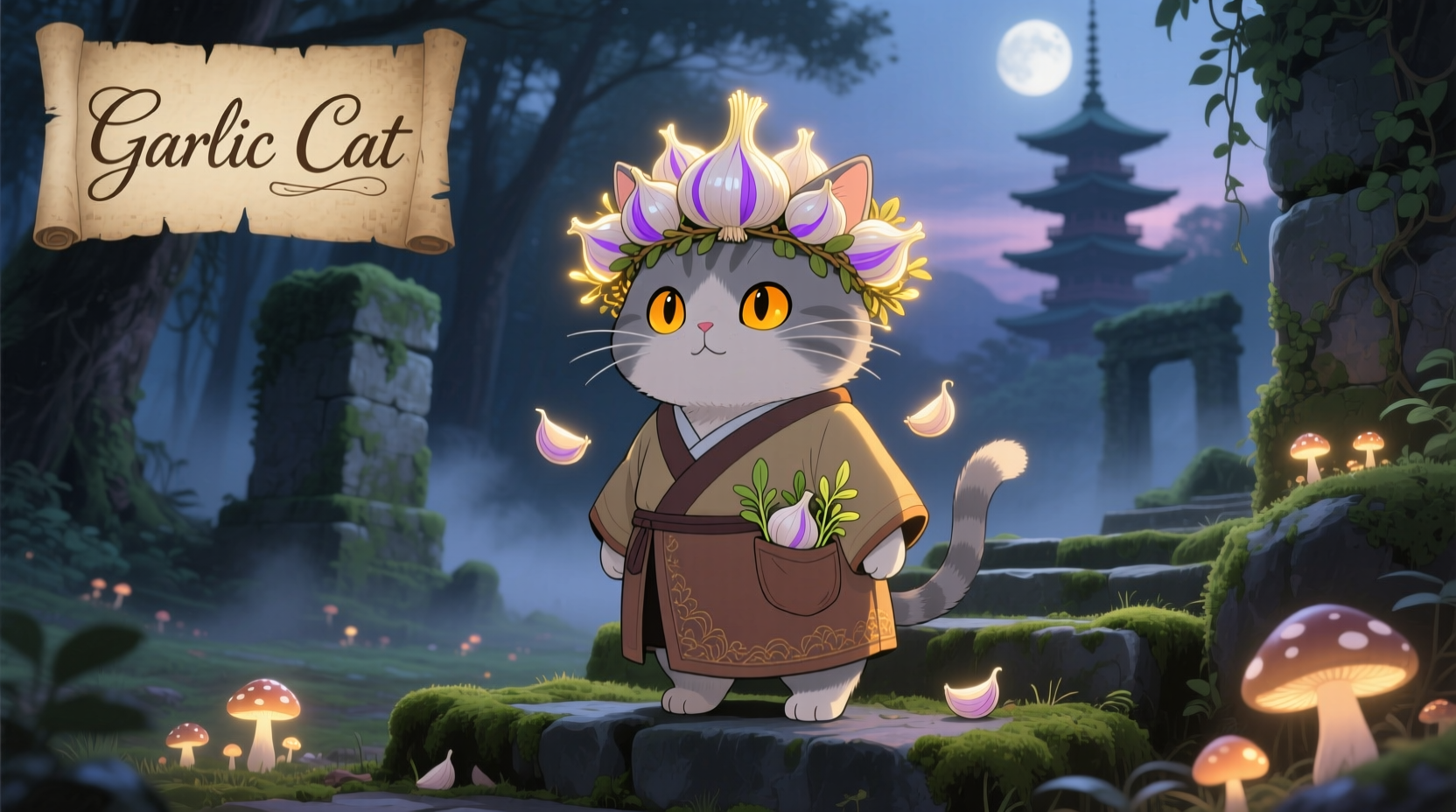When you search for "garlic cat," you're likely encountering dangerous misinformation or accidental exposure scenarios. This comprehensive guide explains exactly why garlic poses severe health risks to felines, how to recognize poisoning symptoms, and what immediate actions could save your cat's life.
Understanding the "Garlic Cat" Misconception
The term "garlic cat" doesn't refer to any legitimate feline breed, supplement, or safe practice. This search query typically emerges from dangerous myths circulating online, accidental poisonings, or confusion with similar-sounding terms. Veterinary toxicologists consistently warn that all members of the Allium family—including garlic, onions, leeks, and chives—are toxic to cats.

Why Garlic Is Particularly Dangerous for Cats
Garlic contains N-propyl disulfide, a compound that oxidizes hemoglobin in red blood cells, causing them to rupture. This condition, known as hemolytic anemia, reduces oxygen delivery throughout the body. What makes garlic especially hazardous:
| Allium Type | Toxicity Level for Cats | Danger Threshold |
|---|---|---|
| Garlic | Extremely High | 15-30g per kg of body weight |
| Onions | High | 5g per kg of body weight |
| Chives | Moderate-High | Small amounts cumulative |
According to the ASPCA Animal Poison Control Center, garlic is approximately five times more toxic to cats than onions. Unlike humans, cats lack the enzyme necessary to metabolize these compounds safely. The damage occurs at the cellular level and may not show immediate symptoms.
Symptom Timeline: What to Watch For
Garlic poisoning symptoms often appear delayed, creating false reassurance. This timeline based on Veterinary Information Network case studies shows critical progression:
- 0-24 hours: Vomiting, diarrhea, abdominal pain (often mistaken for simple stomach upset)
- 24-72 hours: Lethargy, weakness, pale gums (indicators of developing anemia)
- 3-5 days: Jaundice (yellowing of skin/membranes), rapid breathing, dark urine (critical hemolysis stage)
- 5+ days: Organ failure, collapse, potentially death without intervention
Immediate Action Plan: Your Cat Ate Garlic
If your cat consumed garlic—even a small amount—follow these vet-approved steps:
- Contact your veterinarian immediately—do not wait for symptoms. Provide details about quantity and timing.
- Do NOT induce vomiting unless specifically instructed by a veterinary professional.
- Bring the garlic source to the appointment for identification (wrapper, remaining food, etc.).
- Monitor closely for the next 72 hours, documenting any changes in behavior or symptoms.
Treatment typically involves intravenous fluids, oxygen therapy, and in severe cases, blood transfusions. The American Veterinary Medical Association emphasizes that early intervention dramatically improves survival rates.
Hidden Garlic Sources You Might Overlook
Cats often encounter garlic through seemingly harmless products:
- Human baby food (often contains garlic powder as flavor enhancer)
- "Natural" flea repellent supplements
- Leftover human meals (sauces, gravies, seasoned meats)
- Garlic-infused oils used in cooking
- "Healthy" pet treats marketed as holistic remedies
Always check ingredient labels for these alternative names: Allium sativum, garlic powder, garlic salt, garlic juice, or dehydrated garlic. Remember that cooking doesn't eliminate toxicity—the harmful compounds remain active.
Safe Alternatives for Feline Health
Instead of risky home remedies, consult your veterinarian about these evidence-based approaches:
- For digestive health: Probiotic supplements specifically formulated for cats
- For immune support: Veterinary-approved omega-3 supplements
- For flea prevention: Prescription topical treatments with proven safety profiles
- For breath freshening: Dental treats approved by the VOHC (Veterinary Oral Health Council)
The International Cat Care organization confirms that no scientific evidence supports garlic as a safe supplement for cats in any form or quantity. Their research shows cats thrive on balanced commercial diets without added spices.
Preventing Future Exposure
Protect your cat with these practical measures:
- Store garlic and onions in closed cabinets inaccessible to curious cats
- Dispose of food scraps immediately in secured outdoor bins
- Educate all household members about the dangers of sharing human food
- Avoid using garlic-based natural remedies near your cat's environment
- Choose pet-safe plants for your home (no ornamental alliums)











 浙公网安备
33010002000092号
浙公网安备
33010002000092号 浙B2-20120091-4
浙B2-20120091-4